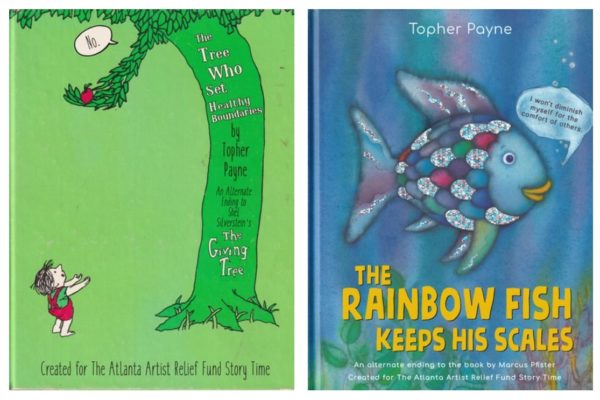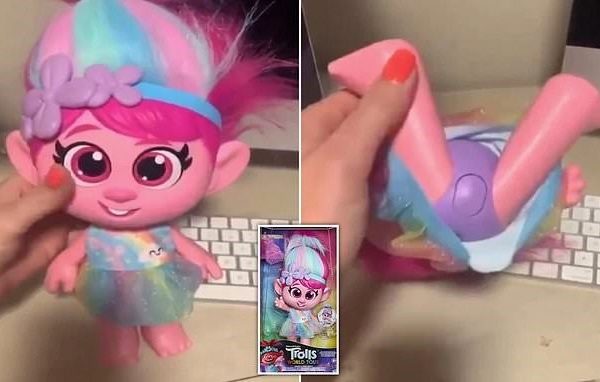Recently I received an email from a concerned parent, asking for advice. Here’s the gist:
The child had discovered genital stimulation at about 2 years old. The parents had tried to address it, creating a firm limit and reminding the tot at each infraction. Yet, the self-stimulation persisted and was becoming more common. There’s even mild skin irritation as a result. What to do?
I can’t tell you how many times I’ve heard some version of this story. If this is your child, you are not alone! Many children 5 and below have little or no impulse control, and it’s quite normal for them to discover that their genitals feel good to touch. From there they may develop a habit of self-stimulating.
These kids are so young that we can’t expect restraint or much behavior change from just talking. Many parents try words, lots of words, and are confused and frustrated when the behavior persists.
No Shame
Thankfully, many parents try to address this behavior without shame. Bravo! That’s progress.
There’s nothing bad or unhealthy about touching our genitals. There’s no need for scary stories or myths about masturbation. Not at this age, or later in adolescence.
At the same time, masturbating in public is an anti-social behavior, and we do need to teach kids to honor and understand the private-public continuum. No matter what the age of the child, chances are that other people will be uncomfortable if they witness the child self-stimulating.
This is absolutely an important lesson to teach, and how we teach it matters. Let’s avoid communicating to the child that their genitals are dirty or yucky or untouchable in any way.
But talking probably won’t be enough. I suggest a two-pronged approach for tots who are self-stimulating: special time and enforcing the limit.
Special Time
A child who is self-stimulating might be doing that because they’re distracting themselves from feeling disconnected or upset. By stepping up the attention or “Special Time” between the parent and child, that disconnection is healed. A stronger bond is formed between the parent and child.
Try 10 minutes of warm attention, when the parent yields control to the child so that the child can connect with them any way they want (within reason).
Special Time can even be offered in the moment when the parent notices the child self-stimulating. Most kids this age will opt for undivided attention from their parent over the self-stimulation; it’s often fairly easy to distract them away from it.
Enforcing the Limit
When confronting the behavior, it’s helpful to remind the child that it’s ok to touch their private parts, but only in a private place, like the bathroom or their bedroom. Simply stating that limit probably won’t be enough, though. You’ll have to take action, too.
Maybe you suggest Special Time, and the child declines. That’s ok. If that happens, pick the child up and move them to their bed. You can explain what you’re doing out loud: “That’s fine, honey. I’m just going to help you move to the right place for that.” Then leave the room.
This enforces the limit that the behavior is allowed but only in private. Likely, the self-stimulation will stop because the tot will want to come back out and be with everyone else.
Alternatively, the child might cry. That’s ok. I wouldn’t interpret tears as being about anything sexual. Instead, it’s probably the original upset getting expressed, the thing the self-stimulation was distracting the child from feeling and expressing.
Now that the parent and child are together, physically touching, in a private space, the child might be able to express that upset and move past it. The parent can simply listen and be available while the child releases those emotions.
Calm repetition
Any child who has made this a habit is going to need your calm presence and to experience the rule enforced again and again.
For many parents, seeing their child display any sexual behavior is upsetting, even if it is normal. That’s a sign that we have our own work to do. We may have our own sexual shame to address. We might need practice saying the words. This is new territory for many.
If your child’s behavior is triggering a big reaction from you, let’s address that pronto! Kids are sexual beings, and there’s only going to be more sexual behavior as they get older.
Let’s make sure your feelings get addressed, your wounds get healed. It’s a brave and proactive parent who does this work on themselves, making sure they’re not passing down the sexual shame they inherited from their parents.
Because when we don’t, all that stuff leaks out sideways, getting in the way of having open and honest conversations about sex. Those ongoing conversations are exactly what is most protective for kids, so now is the best time to deal with our own big feelings.
If you’ve got this challenge, jump on my calendar for a free consult. I’d love to help you with your family’s unique situation.
In support of you,
Anya
P.S. There’s a wonderful interview with Patty Wipfler, founder of Hand In Hand parenting, where she explains Special Time in depth and how it can help kids who self-stimulate. If you’re already a member of the video library, check it out!
If you’re not yet a member, what are you waiting for? Patty’s is just one of over 80 videos addressing all different aspects of talking with kids about sex and relationships. Join now and get 80% off your first month of the membership.








